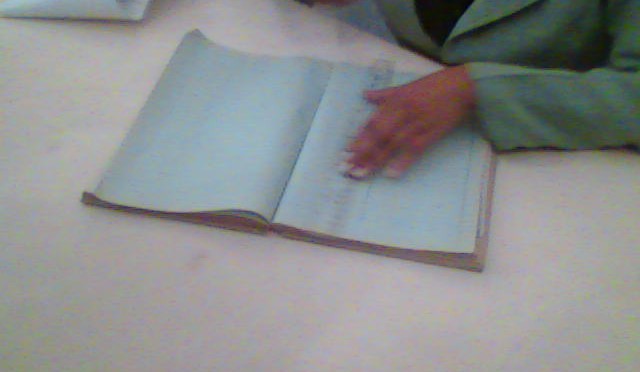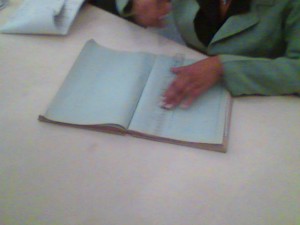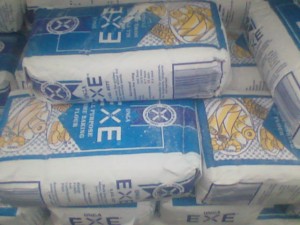Four months ago last review (should be a quarterly exercise going forward) . 2008 has been a year with high prices and cost of living factors in the news. From the post-election violence in January to the (then) world oil prices, the pinch has been felt in Kenya.
The Government has come under pressure, but without addressing of its own excesses (procurement, new offices & limousines, parliemantarians, councilors and judges who refuse to pay income tax), has likewise tried to run the screw on the corporate sector – resulting in efforts to reduce the price of petrol and now maize flour (staple food)
Gotten more expensive
Staple food: Maize flour which is used to make Ugali, that is eaten by a majority of Kenyans daily. A 2 kg. Unga pack at Uchumi today costs Kshs. 97 which is 1/3 more than the Kshs. 73 four months ago. Farming woes continue, the crop this year is bad and Unga who said that they ran out of flour, among other revelations at their AGM, also stated that the maize harvest in 2009 will be worse and high prices will continue. There have been allegations of dodgy imports and the Government is today trying to arm-twist the price of Unga down to Kshs. 55 (EDIT – the Government announced today that maize will cost Kshs. 72 in urban areas and Kshs. 52 in rural areas)
Other food item: Sugar (2 kg. Mumias pack) is at Kshs. 160, up from Kshs. 145 three months ago. For Mumias customers and shareholders, the price is even lower for other unbranded sugar(s) on shelves.
Foreign Exchange: 1 US$ equals Kshs. 79.08, (18% weaker) than the Kshs. 67.4 four months go. This is partly the strengthening of the dollar, partly outflows from Kenya (at the NSE) – and comes after the shilling (while strong) had cushioned some impact of high oil prices.
Gotten cheaper
Fuel: Litre of petrol fuel (at local petrol station) is now Kshs. 92.7 (~$5.40 gallon) which is about 10% cheaper than the Kshs. 101.50 seen last time. While that is still higher than it was at the beginning of the year, and oil prices are down over 60% from the record highs of mid-2008, it is remarkable that for once fuel prices have reduced. In the past they have merely stagnated and oil companies, not passed on savings to consumers, but the threat of the government to regulate the prices, and a sustained media campaign (web/radio) has resulted in a slight reduction in petrol prices. (EDIT – A leading oil marketer – Shell announced today that prices will drop by Kshs. 15)
Entertainment: Bottle of Tusker beer (at local pub) is Kshs. 120 down from Kshs. 130 (cheaper by 8% from four months ago). Don’t know if this is one pub decision or the competition from new Summit beet launched by Keroche in October 2008 – the first true local competitor since (South African) Castle folded shop about six years ago. How will EABL fight back, and do they have to? Keroche got off to a good start but there has been little post launch marketing.
Communications: Continues to get cheaper as two mobile phone companies have become operational in the last quarter of the year – Orange (France Telkom) and Yu (Essar/Econet). The tone was set by Zain’s successful Vuka tariff, priced at Kshs. 8 per minute to call any network. Market leader Safaricom responded with Jibambie (up to a 63% discount) which enabled their subscribers to make calls at prices ranging from Kshs. 8 down to Kshs. 3 per minute if they bought a bigger denomination airtime voucher. The battle for subscribers is shifting now from voice calls which have reached unprecedented lows to data and money transfer where Safaricom is effectively Kenya’s largest ISP and money wallet.
No change: Electricity: My November KPLC bill is still Kshs. 1,900, same as it was in August, with a fuel surcharge reduction yet to be effected. High electricity prices have been a major cause for concern among Kenyan companies leading to President Kibaki to call for a reduction in the taxes levied on petrol prices and electricity.
But: Related: Is the quality of official statistics inflation data in question?
EDIT – Challenged by inflation, but with a view to improving liquidity, the Central Bank of Kenya today lowered the CBR rate (implied base rate) from 9 to 8.5% and also lowered the bank minimum cash ratio from 6 % to 5%

 slow registration
slow registration Shareholder gift
Shareholder gift